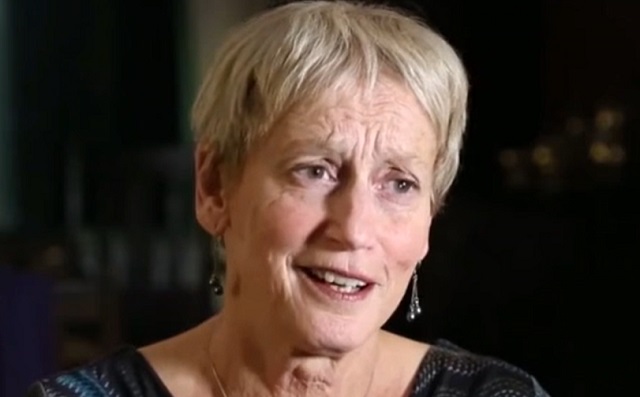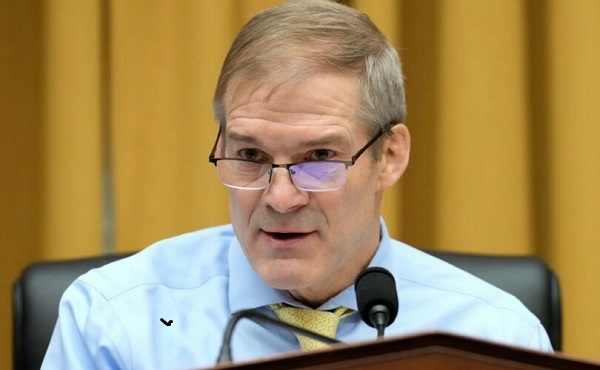Great Reset
Canadian euthanasia doctor takes delight in having killed hundreds through assisted suicide

Ellen Wiebe
From LifeSiteNews
“I know the exact number,” she told Kirkey, but didn’t want to provide it. “It’s become a weird thing, people talking about their numbers, or criticizing people who talk about their numbers.”
The National Post’s July 6 profile of euthanasia doctor and abortionist Ellen Wiebe begins with a barnburner line: “Dr. Ellen Wiebe has never shied away from speaking publicly about the act of ending someone’s life.” That’s a bit of an understatement — Wiebe has positively reveled in it. In the recent BBC documentary Better Off Dead? Wiebe informed disability rights activist Liz Carr that killing patients “is the very best work I’ve ever done.”
Wiebe’s enthusiasm — and chuckling throughout the interview — made viewers very uncomfortable. Clearly, so is National Post writer Sharon Kirkey. The profile of Wiebe is titled “This doctor has helped more than 400 patients die. How many assisted deaths are too many?” Of course, Wiebe hasn’t “helped people die.” She has actively ended their lives by lethal injection. She now realizes that people recoil from that fact. “I know the exact number,” she told Kirkey, but didn’t want to provide it. “It’s become a weird thing, people talking about their numbers, or criticizing people who talk about their numbers.”
“Hundreds is good,” she added. As Kirkey noted, Wiebe had ended at least 430 lives by May 2022, according to her own testimony before a special parliamentary committee on MAiD.
Wiebe has accrued many nicknames — the “pro-choice doctor providing peaceful deaths,” and a “de facto ambassador” of MAiD, for example. Unsurprisingly, she insists that the killing she does be carefully cloaked in Orwellian language. “In Canada, we don’t use the word euthanasia,” she told a podcaster. “That’s what we use for our pets. Here, we call it assisted dying.” Still, Kirkey notes that not everyone is happy about the work she finds so rewarding. She told Scottish euthanasia advocates that “we know that angry family members are our greatest risk” because they are most likely to bring complaints against euthanasia practitioners.
Indeed, as Kirkey notes, Wiebe is willing to bend the rules:
She’s published numerous papers in the assisted dying space, mentoring other doctors and hosting MAID training webinars, but has also been accused of bullying and sneaking her way into faith-based facilities. She’s faced multiple complaints against her to the College of Physicians and Surgeons of British Columbia. but has always been found in compliance with the rules …
Wiebe has had several complaints lodged against her, including her provision of death in the case of “Ms. S,” a 56-year-old woman with advanced multiple sclerosis who, in 2017, starved herself to meet eligibility criteria that her death was “reasonably foreseeable,” a case with eerie echoes to the 27-year-old autistic Calgary woman who stopped eating and drinking in May over a judge’s order blocking her access to MAiD.
In 2017, Wiebe was accused of “borderline unethical” behaviour for entering Vancouver’s Louis Brier Home & Hospital, an Orthodox Jewish long-term care home, and providing MAID to 83-year-old cancer patient Barry Hyman, despite knowing the facility did not allow assisted deaths on its site. Hyman’s family had invited Wiebe in to honour his wish to die in his room. As Wiebe assembled her prepared syringes, “My heart was racing that someone would open the door,” Hyman’s daughter, Lola, told The Globe and Mail.
The same year, the chief medical officer and coroner with B.C.’s coroner’s service raised questions about Wiebe’s provision of MAID to a woman with dementia.
As she told journalist Peter Stockland in 2018, her practice comes “right up to the edge of the law but never beyond.” Thus far, at least, the authorities have agreed with her.
Although Wiebe is 72 and suffers from a heart condition, she’s determined to continue the work she believes in the most — euthanasia and abortion. Euthanasia, in particular, she says, is “the last thing I’ll give up,” and both euthanasia and abortion are “about honouring people’s wishes, empowering people to have control over their own lives. It’s wonderful that I have the opportunity to do that.” Kirkey notes that, as in the BBC documentary, Wiebe grinned and laughed in her interview with the National Post. “I love life,” she told Kirkey.
Disturbingly, Wiebe isn’t the only euthanasia practitioner who enjoys her work. Kirkey noted that in “one study, MAiD providers with between 12 and 113 assisted deaths each described the delivery of a medical death as ‘heartwarming,’ ‘the most important medicine I do,’ ‘an ultimate act of compassion,’ ‘liberating’ and ‘almost an adrenaline rush. I was surprised at how good I felt.’” As Christopher Lyon, a social scientist at the University of York, observed, this is jarring “because death is usually a deeply painful or difficult moment for the patients and their loved ones.” As Kirkey noted:
Lyon’s 77-year-old father died by MAiD in a Victoria hospital room in 2021, over the family’s objections. (Wiebe was not the provider.) His father had bouts of depression and suicidal thinking but was approved for MAiD nonetheless. Lyon wonders what draws some providers to MAiD “and what happens to a person when killing becomes a daily or weekly event.”
“Some providers have counts in the hundreds — this isn’t normal, for any occupation,” he said. “Even members of the military at war do not typically kill that frequently. I think that’s a question that we’ve not really ever asked.”
Wiebe says she didn’t plan to be a euthanasia practitioner — she grew up in a conservative, Bible-believing Mennonite home in Alberta but abandoned faith by age 17 — but has been long committed to the medicalized killing. In her work as an abortionist, she did “pioneering work on medical abortions and bringing trials of the abortion drug, mifepristone, to Canada.” When the Supreme Court legalized euthanasia, she wanted in. “I called up a friend who was also an abortion provider and said, ‘Palliative care is not going to do the work. We better figure out how to get trained and get in there,’” she told the National Post.
She and her abortionist colleague went to the Netherlands in 2016 to meet with euthanasia practitioners and learn the trade. “Now it’s half my clinical work and very, very important,” she said. Unsurprisingly, she has repeatedly said that she sees much similarity between abortion and euthanasia. Family members, she tells the National Post, are often shocked by how swiftly death comes after she administers the lethal injection. “When everybody is ready, I say, ‘Okay, ready to go to sleep?’” she recounted, apparently unaware of how similar this sounds to putting a pet to sleep. The entire process, she says, usually takes about five minutes.
Wiebe believes that Canada’s euthanasia regime will only expand in the years ahead. Kirkey writes:
She fully anticipates that MAiD will be extended to mature minors. “I’ve always been assuming for eight years that a 17-year-old with terminal cancer is going to say, ‘I have the right,’ and of course any judge in the country will say, ‘Yes, you do.’” She also expects some form of advance requests for MAiD in cases of dementia, which would allow a person to make a written request for euthanasia that could be honoured later, even if they lose their capacity to make medical decisions for themselves. Support for advance requests is strong, according to polls. But if someone is unable to express how they’re feeling, who decides if they are suffering unbearably — and what if they changed their minds? MAID doctors may be asked to “provide” for someone they have not met before, and with whom they will not be able to communicate. That’s going to be hard for us as providers,” she said. “This will be a new challenge. And I’m up for challenges.”
Wiebe’s predictions and enthusiasm are a warning for Canada. We have seen tens of thousands of Canadians die by lethal injection and many others speak out about how they feel pressured or pushed into euthanasia. It is imperative that Wiebe’s vision for Canada be opposed at every step. Lives depend on it.
Alberta
Alberta government announces review of Trudeau’s euthanasia regime

From LifeSiteNews
Alberta announced it ‘is reviewing how MAID is regulated to ensure there is a consistent process as well as oversight that protects vulnerable Albertans, specifically those living with disabilities or suffering from mental health challenges.’
The Conservative provincial government of Alberta is pushing back against the Canadian federal government’s continued desire to expand euthanasia in the nation, saying it will launch a review of the legislation and policies surrounding the grim practice, including a period of public engagement.
The United Conservative Party (UCP) government under Premier Danielle Smith in a press release said the province needs to make sure that robust safeguards and procedures are in place to protect vulnerable people from being coerced into getting euthanatized under the MAiD (Medical Assistance in Dying) program.
“Alberta’s government is reviewing how MAID is regulated to ensure there is a consistent process as well as oversight that protects vulnerable Albertans, specifically those living with disabilities or suffering from mental health challenges,” said the government Monday.
The government said a online survey regarding MAiD open to all Albertans who have opinions about the deadly practice will be available until December 20.
“We recognize that medical assistance in dying is a very complex and often personal issue and is an important, sensitive and emotional matter for patients and their families,” said Alberta’s Minister of Justice and Attorney General Mickey Amery.
Amery said it is important to ensure this process has the “necessary supports to protect the most vulnerable.”
The government said that it will also be engaging with academics, medical associations, public bodies, as well as religious organizations and “regulatory bodies, advocacy groups” regarding MAiD
The government said all information gathered through this consultation will “help inform the Alberta government’s planning and policy decision making, including potential legislative changes regarding MAID in Alberta.”
When it comes to MAiD, Prime Minister Justin Trudeau’s Liberal government sought to expand it from the chronically and terminally ill to those suffering solely from mental illness.
However, in February, after pushback from pro-life, medical, and mental health groups as well as most of Canada’s provinces, the federal government delayed the mental illness expansion until 2027.
Alberta’s Minister of Mental Health and Addiction Dan Williams said that the UCP government has been “clear” that it does not “support the provision of medically assisted suicide for vulnerable Albertans facing mental illness as their primary purpose for seeking their own death.”
“Instead, our goal is to build a continuum of care where vulnerable Albertans can live in long-term health and fulfilment. We look forward to the feedback of Albertans as we proceed with this important issue,” he noted.
The Alberta government said that as MAiD is “federally legislated and regulated” it is main job will be to try and make sure that it protects “vulnerable individuals” as much as possible.
Alberta’s Minister of Health Adriana LaGrange reaffirmed that the Alberta government “does not support expanding MAID eligibility to include those facing depression or mental illness and continues to call on the federal government to end this policy altogether.”
The number of Canadians killed by lethal injection under the nation’s MAiD program since 2016 stands at close to 65,000, with an estimated 16,000 deaths in 2023 alone. Many fear that because the official statistics are manipulated the number may be even higher.
To combat Canadians being coerced into MAiD, which LifeSiteNews has covered, the combat pro-life Delta Hospice Society (DHS) is offering a free “Do Not Euthanize Defense Kit” to help vulnerable people “protect themselves” from any healthcare workers who might push euthanasia on the defenseless.
Censorship Industrial Complex
Congressional investigation into authors of ‘Disinformation Dozen’ intensifies

From LifeSiteNews
By Dr. Michael Nevradakis of The Defender
The Center for Countering Digital Hate, authors of ‘The Disinformation Dozen,’ faces a Nov. 21 deadline to provide Congress with documents related to its alleged collusion with the Biden administration and social media platforms to censor online users.
The Center for Countering Digital Hate (CCDH), authors of the “Disinformation Dozen,” faces a Nov. 21 deadline to provide Congress with documents related to its alleged collusion with the Biden administration and social media platforms to censor online users.
Rep. Jim Jordan (R-Ohio), chairman of the House Judiciary Committee, on Nov. 7 subpoenaed CCDH as part of an ongoing congressional investigation, launched in August 2023, into the nonprofit’s censorship-related activities.
The subpoena requests all communications and documents “between or among CCDH, the Executive Branch, or third parties, including social media companies, relating to the identification of groups, accounts, channels, or posts for moderation, deletion, suppression, restriction, or reduced circulation.”
The subpoena also requests all records, notes, and other “documents of interactions between or among CCDH and the Executive Branch referring or relating to ‘killing’ or taking adverse action against Elon Musk’s X social media platform (formerly Twitter).”
CCDH previously included Kennedy on its “Disinformation Dozen” list, published in March 2021, of the 12 “leading online anti-vaxxers.”
Leaked CCDH documents released last month by investigative journalists Paul D. Thacker and Matt Taibbi revealed that CCDH sought to “kill” Twitter and launch “black ops” against Robert F. Kennedy Jr., President-elect Donald J. Trump’s nominee for secretary of the U.S. Department of Health and Human Services (HHS).
CCDH included Kennedy, founder of Children’s Health Defense (CHD), on its list of “The Disinformation Dozen” when he was still chairman of CHD.
“Black ops” are defined as a “secret mission or campaign carried out by a military, governmental or other organization, typically one in which the organization conceals or denies its involvement.”
A subsequent report by Taibbi and Thacker showed that CCDH employed tactics it initially developed to help U.K. Prime Minister Keir Starmer and the U.S. Democratic Party, to target Musk, Kennedy and others.
CCDH used ‘explicit military terminology’ to target speech
Thacker told The Defender the leaked documents “definitely spurred” Jordan’s subpoena.
Sayer Ji, the founder of GreenMedInfo, was also listed among “The Disinformation Dozen.” He said the leaked documents were “chilling” and that CCDH’s efforts were part of “the largest coordinated foreign influence operation targeting American speech since 1776.”
Ji told The Defender:
The leaked documents confirm what we experienced firsthand: CCDH wasn’t just targeting 12 individuals – we were test cases for deploying military-grade psychological operations against civilians at scale.
Just as the British Crown once used seditious libel laws to silence colonial dissent, CCDH’s operation expanded to silence hundreds of millions globally, from doctors sharing clinical observations to parents discussing vaccine injuries.
Ohio physician Dr. Sherri Tenpenny, also on “The Disinformation Dozen” list, told The Defender, “The exposure of the manipulation that went on behind the scenes to silence us is what we suspected, and now we know … We have the sad last laugh against their attacks. They are the ones with blood on their hands.”
Ji said CCDH’s internal communications reveal not just bias, “but explicit military terminology – ‘black ops,’ ‘target acquisition,’ ‘strategic deployment’ – coordinated between Five Eyes networks and dark money interests to target constitutionally protected speech.”
Writing on GreenMedInfo, Ji said, “CCDH’s ‘black ops’ approach includes coordinated media smears, economic isolation, and digital censorship.” Ji said CCDH’s activities represent “a new level of institutionalized power directed at civilian targets, often bypassing constitutional safeguards.”
Thacker said Jordan’s investigation should expand to include CCDH’s “black ops.”
“I don’t want to speculate on what CCDH was doing with ‘black ops’ against Kennedy,” Thacker said. “I think that should be explored by a congressional committee, with CCDH CEO Imran Ahmed put under oath,” Thacker said.
CCDH facing multiple lawsuits, possible Trump administration investigation
Jordan’s subpoena is the latest in a series of legal challenges for CCDH. According to GreenMedInfo, the organization faces several lawsuits and government investigations.
Following last month’s CCDH document leak, the Trump campaign said an investigation into CCDH “will be at the top of the list.”
The campaign also filed a complaint against the Harris campaign with the Federal Election Commission, “for making and accepting illegal foreign national contributions” – namely, from the U.K. Labour Party.
This followed the release of evidence indicating that the Biden administration coordinated with the U.K. Foreign Office as part of what GreenMedInfo described “as a systematic censorship regime involving CCDH and affiliated organizations.”
A lawsuit Musk filed against CCDH in July 2023 for allegedly illegally obtaining data and using it in a “scare campaign” to deter advertisers from X will likely proceed on appeal. A federal court initially dismissed the lawsuit in March.
Discovery in the Missouri v. Biden free speech lawsuit may also “shed further light and legal scrutiny on the critical role that CCDH played in allegedly suppressing and violating the civil liberties of U.S. citizens,” according to GreenMedInfo.
CCDH, others flee X in protest
Earlier this week, CCDH deleted its account on X, the platform it wanted to “kill.”
Writing on Substack, Ji said CCDH’s departure from X, during the same week Trump nominated Kennedy to lead HHS, represents a “seismic shift” and marks “a watershed moment, signaling the unraveling of entrenched systems of control and the rise of a new era for health freedom and open discourse.”
Several other left-leaning organizations and individuals, including The Guardian and journalist Don Lemon, also said they will stop using X, after Trump tapped Musk to lead a federal agency tasked with increasing government efficiency.
According to NBC News, many ordinary users are also fleeing X, citing “bots, partisan advertisements and harassment, which they all felt reached a tipping point when Donald Trump was elected president last week with Musk’s support.”
But according to Adweek, X’s former top advertisers, including Comcast, IBM, Disney, Warner Bros. Discovery and Lionsgate Entertainment, resumed ad spending on the platform this year, but at “much lower rates” than before.
“Elon Musk’s ties with Donald Trump might spur some advertisers to think spending on X is good for business,” Adweek reported.
Thacker said CCDH’s deletion of its X account was “aligned” with the departure of “other organizations and ‘journalists’ aligned with the Democratic Party.” He said it appears to have been a “coordinated protest.”
Ji said organizations like CCDH view X “as an existential threat.” He added:
Having experienced both Twitter 1.0’s AI-driven censorship system and X’s more open environment, I understand exactly why CCDH sees X as an existential threat. X represents what Twitter 1.0’s embedded censorship infrastructure was designed to prevent: a truly free digital public square.
Under Musk’s commitment to free speech, their tactical advantage disappeared. They’re not leaving because X is toxic. They’re leaving because they can’t control it.
Online censorship ‘may no longer be sustainable under intensified scrutiny’
According to GreenMedInfo, CCDH’s departure from X “appears to reflect an internal recognition that their operational model – characterized by critics as a US-U.K. intelligence ‘cut-out’ facilitating unconstitutional suppression of civil liberties – may no longer be sustainable under intensified scrutiny.”
In recent months, several mainstream media outlets have corrected stories that relied upon CCDH reports claiming “The Disinformation Dozen” was responsible for up to two-thirds of vaccine-related “misinformation” online.
According to Thacker, this reflects an increasing awareness by such outlets that readers are turning their backs on such reporting.
“The outlets that promoted CCDH propaganda are being investigated by their own readers, who are fleeing in droves. Readers are voting against this type of propaganda by refusing to subscribe to these media outlets,” Thacker said.
Yet, “many outlets continue to host these demonstrably false narratives without correction,” Ji said.
According to Ji, these false narratives resulted in medical professionals fearing the loss of their licenses for expressing non-establishment views, self-censorship among scientists “to avoid career destruction,” suppression of “critical public health discussions” and the labeling of millions of posts as “misinformation.”
“This isn’t just about suppressing speech. It’s about establishing a new form of digital control that echoes the colonial-era suppression our founders fought against,” Ji said.
“CCDH has polluted political discourse by pretending there is some absolute definition of the term ‘misinformation’ and that they hold the dictionary,” Thacker said. “That’s nonsense. They spread hate and misinformation to attack perceived political enemies of the Democratic Party.”
Ji called upon Congress to investigate “The full scope of those silenced beyond the ‘Disinformation Dozen,’” the “systematic suppression of scientific debate,” “media organizations’ role in amplifying foreign influence operations” and “dark money funding networks” supporting such organizations.
Thacker said Congress should examine possible CCDH violations of the Foreign Agents Registration Act. “We need to also look at how much foreign money they took in and whether we as a nation are comfortable with foreign influence trying to alter the law and political discussions.”
“The fight isn’t just about correcting past wrongs or personal vindication. It’s about preserving fundamental rights to free speech and scientific inquiry in the digital age,” Ji said. “If we don’t address this systematic abuse of power, we risk surrendering the very freedoms our founders fought to establish.”
This article was originally published by The Defender – Children’s Health Defense’s News & Views Website. Please consider subscribing to The Defender or donating to Children’s Health Defense.
-

 ESG2 days ago
ESG2 days agoCan’t afford Rent? Groceries for your kids? Trudeau says suck it up and pay the tax!
-

 John Stossel2 days ago
John Stossel2 days agoGreen Energy Needs Minerals, Yet America Blocks New Mines
-

 Daily Caller2 days ago
Daily Caller2 days agoLos Angeles Passes ‘Sanctuary City’ Ordinance In Wake Of Trump’s Deportation Plan
-

 Alberta2 days ago
Alberta2 days agoProvince considering new Red Deer River reservoir east of Red Deer
-

 Addictions2 days ago
Addictions2 days agoBC Addictions Expert Questions Ties Between Safer Supply Advocates and For-Profit Companies
-

 Aristotle Foundation1 day ago
Aristotle Foundation1 day agoToronto cancels history, again: The irony and injustice of renaming Yonge-Dundas Square to Sankofa Square
-

 armed forces1 day ago
armed forces1 day agoJudge dismisses Canadian military personnel’s lawsuit against COVID shot mandate
-

 conflict2 days ago
conflict2 days agoPutin Launches Mass-Production of Nuclear Shelters for his People







